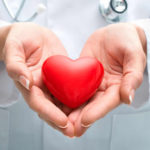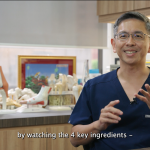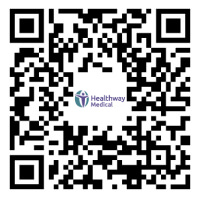
When we are faced with difficult situations or losses, it is not unusual to feel sad or distressed as we attempt to adjust to the change. These situations or triggers can be anything from the passing of a loved one to the ending of a cherished relationship, or losing a job.
For most of us, this sadness is normal and temporary. It will improve when we overcome the problems or have come to terms with the changes.
What is Depression?
However, closer attention is necessary when sadness arises in the absence of a trigger and when it becomes persistent despite improvement in life circumstances.
Sadness at this level is termed depression, a common but severe and disabling medical condition that can be treated. Depression can negatively affect how we feel, think and act. It can gradually lead to emotional, cognitive and physical problems, which can in turn impact our ability to function at work and in social settings.
Types of Depression
Dr Marcus Tan shared that there are different sub-types of depression. They are distinguished by their unique symptomatic pattern, course and severity.
Sub-types of depression:
- Major depressive disorder – the most common form of clinical depression where the individual will constantly feel hopelessness and despair
- Dysthymia – a chronic form of depression where the individual will experience a low mood for an extended period
- Bipolar depression – a chronic form of depression where the individual will experience extreme mood swings or emotional highs and lows
What are the Tell-Tale Signs of Depression?
In general, the symptoms that may suggest depression rather than a sad mood are:
- Loss of interest or pleasure in activities usually enjoyed
- Changes in appetite (e.g. weight loss or weight gain unrelated to lifestyle change or diet)
- Difficulty sleeping or sleeping too much
- Getting tired easily or feeling a lack of energy
- Increased irritability
- Feeling more anxious or worried
- Having trouble thinking, concentrating or making decisions
- Feeling worthless
- Feeling inappropriate guilt
- Having suicidal thoughts
These symptoms can vary from mild to severe and must exist for at least two weeks to qualify for a diagnosis of depression.
Depression is Common
According to the World Health Organization, over 300 million people suffered from depression in 2015. This was equivalent to 4.4% of the world’s population.
http://apps.who.int/iris/bitstream/handle/10665/254610/WHO-MSD-MER-2017.2-eng.pdf;jsessionid=FDE9D7F8E64BD761373903546C936457?sequence=1
Depression can affect anyone, even people who appear to “have it all”. It can occur at any age or phase of our lives.
Contributing factors of depression are:
- Genetics
- Brain biochemistry
- Adverse environmental factors
How is Depression Diagnosed?
Assessment for depression involves a detailed interview, physical examination and medical history-taking. Specific questions about family, cultural and environmental circumstance will be asked during the interview. In some cases, blood tests or even imaging studies are done to ensure that the depressive symptoms are not due to another medical condition such as thyroid disorder or diabetes mellitus.
These assessments will help the doctor or psychologist to tailor a holistic treatment plan for the affected individual.
How is Depression Treated?
“Depression is no different from a common cold, and it is highly treatable. With prescribed treatment, almost all patients can experience some form of symptomatic relief. Eight to nine out of 10 eventually respond well to treatment”, says Dr Marcus Tan.
Treatment methods usually include psychotherapy, antidepressant medication and or physical treatments.
- Psychotherapy – talk therapy which aims to help individuals understand their situations and formulate coping strategies
- Antidepressant medication – helps correct brain chemistry imbalances that are now known to contribute to depressive symptoms. These are not sedatives or tranquillisers and are not habit-forming
- Electro-convulsive therapy – most commonly used on those who have severe or bipolar depression. It is also for individuals who have not responded well to other forms of treatment.
Managing Depression
There are also many ways to help individuals feel better about themselves together with medical treatment.
People with depression can:
- Start exercising regularly
- Have adequate sleep
- Maintain a healthy diet
- Avoid energy-sapping substances such as alcohol

Dr Marcus Tan
Consultant Psychiatrist and Group Director, Nobel Psychological Wellness Clinic
Click here to book an appointment now!
“Like any medical illness, early evaluation and treatment can help reduce unnecessary distress. The first step to recovery is a call to the doctor’s or psychologist’s office to get professional help right away,” advises Dr Marcus Tan.
Dr Marcus Tan is a Consultant Psychiatrist from Nobel Psychological Wellness Clinic, a member of Healthway Medical Group.









